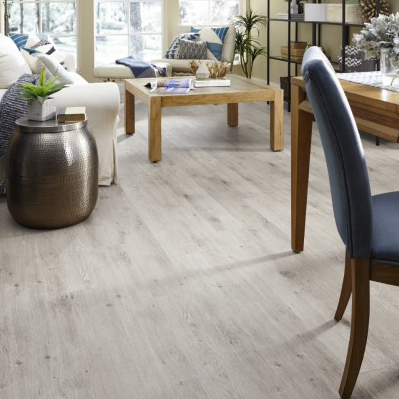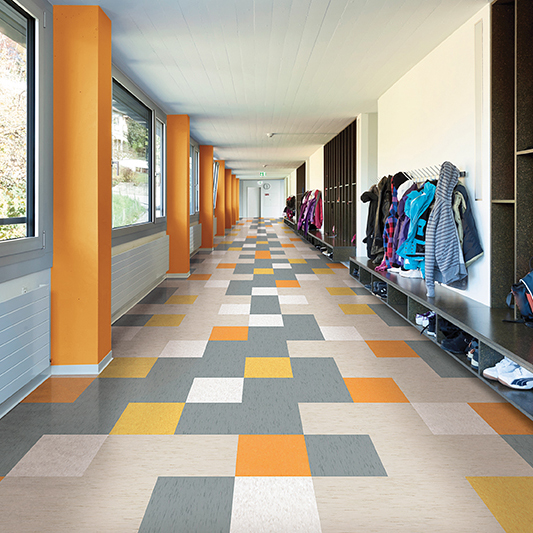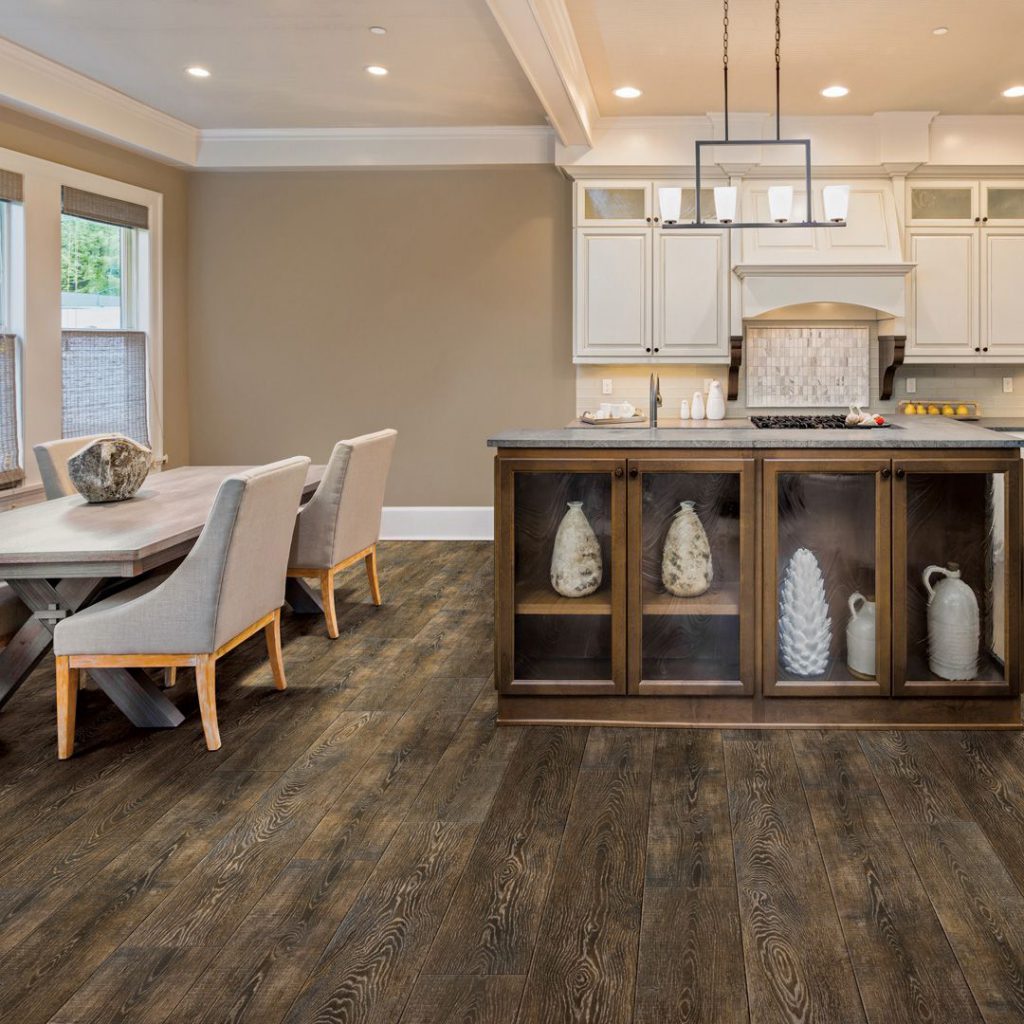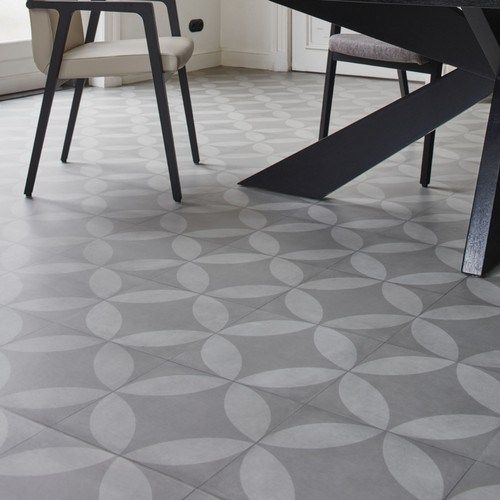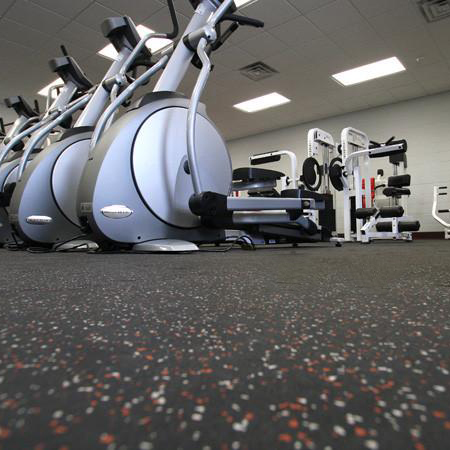Luxury Vinyl Tile & Plank
Luxury Vinyl Tile/Plank, 3D printing technology which adds depth and realism. Durable with high performance wear layer. Can be installed anywhere in the home.
Solid LVT dryback – Mainly used in multi-family, commercial applications and where consumer price point is critical. Installed directly glued to the subfloor and requires extensive subfloor prep.
LVT floating – Used in residential and commercial applications where subfloor conditions is addressed; exposure to sunlight/heat is not critical, but pricing economics is a factor. Requires substantial subfloor prep.
Vinyl Composite Tile
Vinyl composition tile is a finished flooring material used primarily in commercial and institutional applications. In installation the floor tiles or sheet flooring are applied to a smooth, leveled sub-floor using a specially formulated vinyl adhesive or tile mastic that remains pliable.
Click Lock Waterproof Floating Vinyl Floors
WPC also known as Wood Plastic Composite has a core construction made with a foaming agent, creating microscopic air pockets in the core that function as a heat and sound insulator for ultimate comfort underfoot. Indentation resistance is ideal for residential and light commercial applications and dimensional stability under moderate exposure to sunlight/heat. The ultimate product for residential environments and suitable for active households with built-in sound abatement benefits. Rigid Core Features – Composite core construction, a step up from solid LVT, with a higher filler content and higher density without any foaming agent creating air bubbles in the core. This results in a thinner, harder plank. Primarily suitable where higher indentation resistance is required and extensive exposure to sunlight/heat can occur. Ideal for commercial applications. Relatively forgiving over imperfect subfloors.
Sheet Vinyl
Sheet vinyl generally costs less than tile or plank materials. This is because they can mass produce it in large rolls, without having to worry about precision cuts and waste materials. It will be up to you or your flooring installer to measure the space it will be put into, and then to cut the material down to the appropriate size. Probably the biggest advantage of sheet vinyl over tile is the fact that it can usually be installed in just one or two solid, unbroken pieces. With sheet vinyl you just have to make sure that the material is secure at the edges of the room, and that any overlapping pieces are sealed and bonded using adhesive and heat.
Rubber Floors
Durable, easy-to-clean, generally requires no more than a damp mop (never wet). Soft underfoot and this is one of primary reasons it’s so popular for exercise rooms and playrooms. In general, the thicker the flooring, the softer it is. Most rubber flooring is highly resistant to damage from moisture on both the top and bottom surfaces of the material. The elasticity of rubber flooring makes it very quiet to walk on. Rubber flooring also has fewer applications in the typical home. As great as it is for activity areas, most rubber flooring doesn’t have the right look and feel for living spaces (but you can be the judge of that). Premium rubber flooring can be quite expensive.

